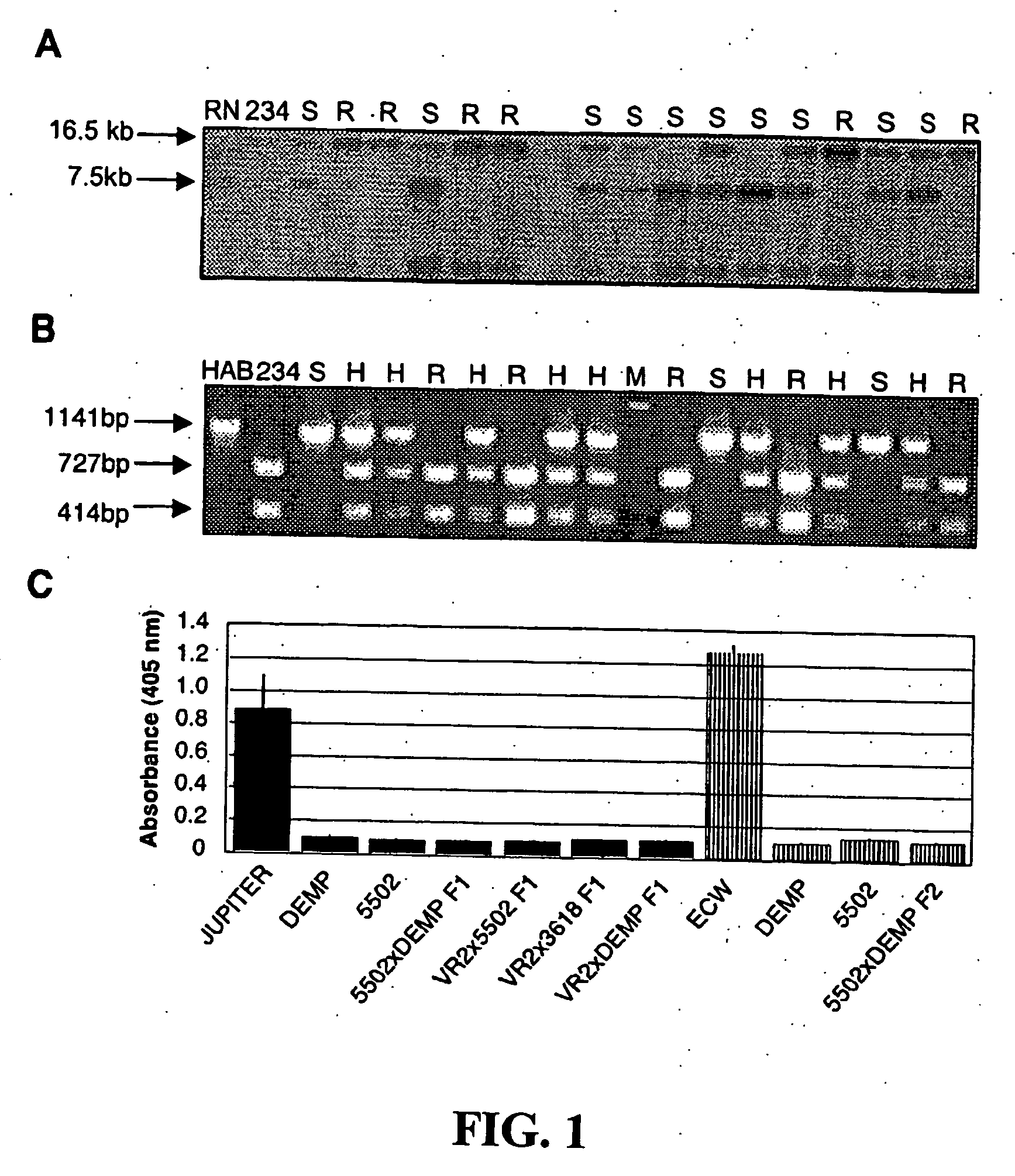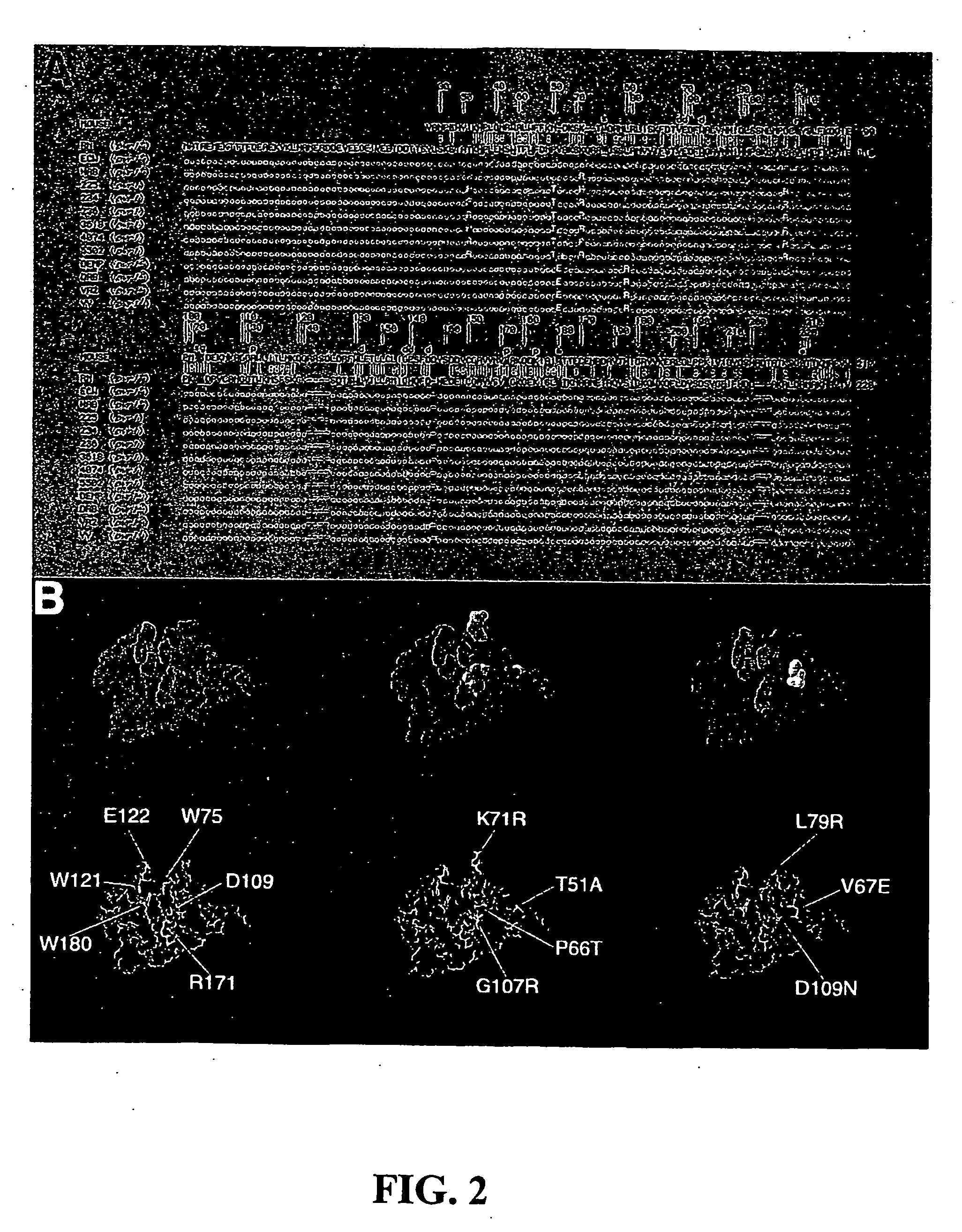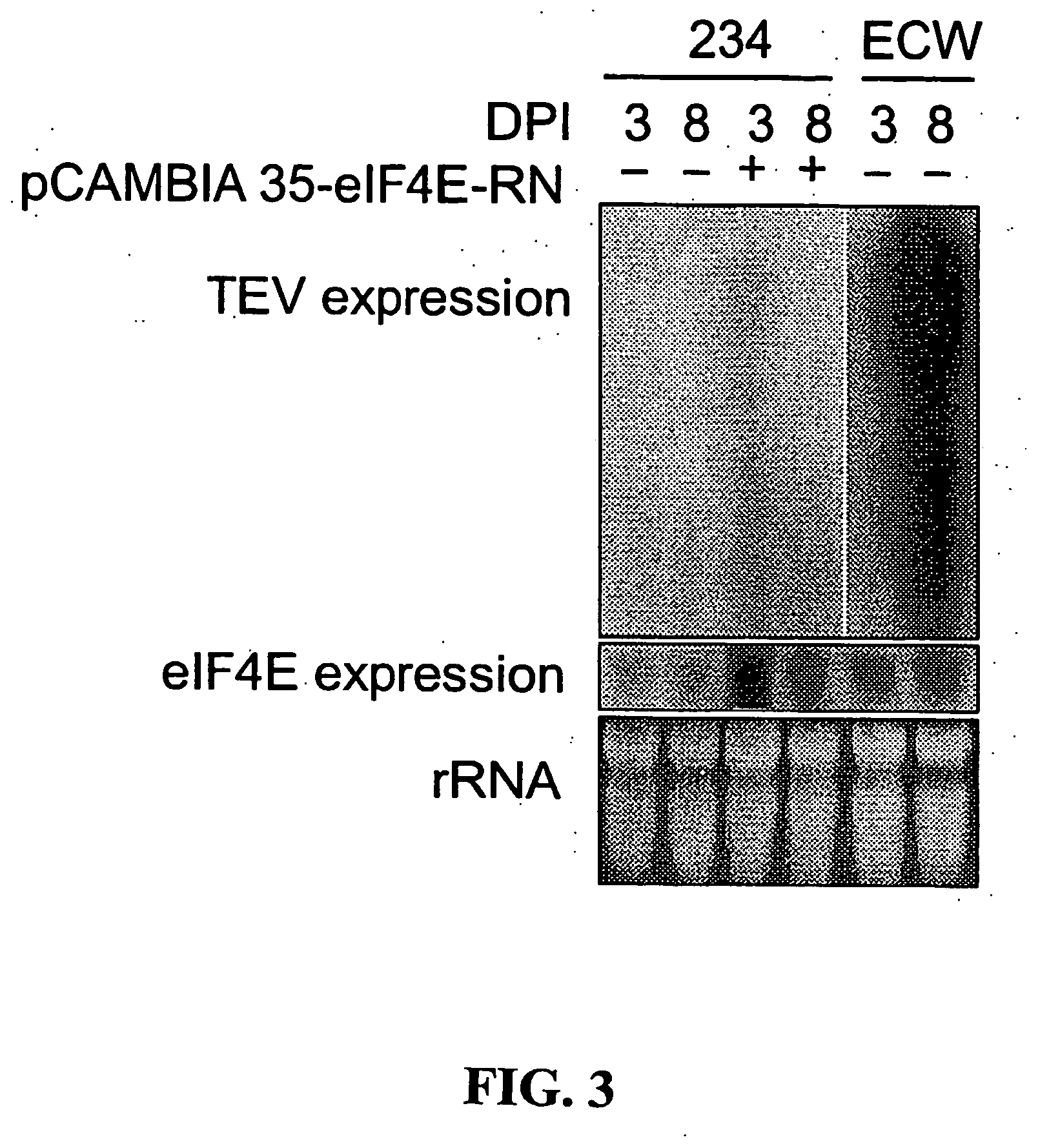Recessive plant viral resistance results from mutations in translation initiation factor eIf4e
a technology of plant viral resistance and translation initiation factor, which is applied in the field of plant viral resistance that results from mutations in translation initiation factor eif4e, can solve the problems of limited attention to plant disease resistance conferred by recessive genetic factors, and little is known about the identity of naturally occurring recessive disease resistance genes in plants, so as to enhance virus resistance, enhance virus resistance, and impart virus resistance to the transgenic plant
- Summary
- Abstract
- Description
- Claims
- Application Information
AI Technical Summary
Benefits of technology
Problems solved by technology
Method used
Image
Examples
example 1
Recombinant Technology Used in Analyzing Recessive Plant Viral Resistance Due to Mutations in Translation Initiation Factor eIF4E
[0089] DNA and RNA blotting techniques were done by standard procedures. Mapping was done according to (Murphy et al., “Genetic Mapping of the pvr1 Locus in Capsicum spp. and Evidence that Distinct Potyvirus Resistance Loci Control Responses that Differ at the Whole Plant and Cellular Levels,”Mol. Plant Microbe Interact. 11:943-951 (1998), which is hereby incorporated by reference in its entirety).
example 2
Primer Sequences and PCR Cycling Procedures Used in Analyzing Recessive Plant Viral Resistance Due to Mutations in Translation Initiation Factor eIF4E
[0090] eIF4E-687 full-length ORF primers based on tomato eIF4E sequence (Genbank # AF259801) were as follows:
(SEQ ID NO:9)Forward 5′-atggcaacagctgaaatgg-3′(SEQ ID NO:10)Reverse 5′-tatacggtgtaacgattcttggca-3′
[0091] Pepper-specific sequence at the 5′ and 3′ ends were confirmed by RACE and PCR-Walking (Clontech, Palo Alto, Calif.).
[0092] PCR cycling conditions were as follows:
[0093] 95° C. 3 min
[0094] (95° C. 30 sec, 55° C. 30 sec, 72° C. 5 mins)×1
[0095] (95° C. 30 sec, 55° C. 30 sec, 72° C. 90 sec)×29
[0096] 72° C. 10 mins
[0097] Primers used to amplify the internal 321 bp genomic sequence spanning an intron containing the MseI CAPS differential cleavage site were based on conserved sequence motifs from Genbank eIF4E accessions, as follows:
(SEQ ID NO:11)Forward 5′-aatatccatcacccaag-3′(SEQ ID NO:12)Reverse 5′-gctccacatatttcatc-3′...
example 3
Inoculation of Seedlings for Use in Virus Screening Procedures Used in Analyzing Recessive Plant Viral Resistance Due to Mutations in Translation Initiation Factor eIF4E
[0115] The first two leaves of seedlings at the 4-6 leaf stage were rub-inoculated (using carborundum) with plant extract from TEV-HAT or PepMoV infected tobacco plants ground in ice-cold 0.05 M potassium phosphate buffer, pH 8. Systemic infection was assayed at 21 days post inoculation by visual symptoms and confirmed by indirect ELISA (Voller et al., “The Detection of Viruses by Enzyme-Linked Immunosorbent Assay (ELISA),”Journal of General Virology 33:165-167 (1976), which is hereby incorporated by reference in its entirety).
PUM
| Property | Measurement | Unit |
|---|---|---|
| temperature | aaaaa | aaaaa |
| pH | aaaaa | aaaaa |
| pH | aaaaa | aaaaa |
Abstract
Description
Claims
Application Information
 Login to View More
Login to View More - R&D
- Intellectual Property
- Life Sciences
- Materials
- Tech Scout
- Unparalleled Data Quality
- Higher Quality Content
- 60% Fewer Hallucinations
Browse by: Latest US Patents, China's latest patents, Technical Efficacy Thesaurus, Application Domain, Technology Topic, Popular Technical Reports.
© 2025 PatSnap. All rights reserved.Legal|Privacy policy|Modern Slavery Act Transparency Statement|Sitemap|About US| Contact US: help@patsnap.com



